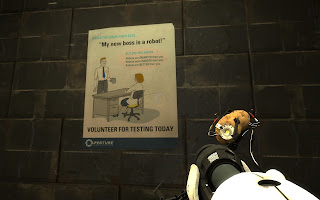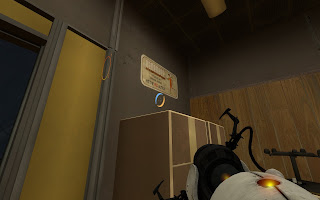Down from the attic, a giant stack of Age of Empires, spanning over a decade. Simplest thing would be to make an ISO out of every CD, test them to see that they work, maybe even play them, then toss the whole pile. The games are likely worth nothing, I wonder how much I could get for the Collector's Editions? Seeing as how they are now used, not much, maybe $20-$40. Probably not worth the effort, considering the hassle that eBay has become. I'll table that for now - I just want to play.
There are so many horror stories when it comes to installing ancient software on new machines, but Windows 7 has been really good with the backwards compatibility. I make an image and install quickly. The intro video was cheesy, but brought up some nice old memories of when this game was hot; when it drew me away from the similar but quieter Civilization games.
I haven't even started yet, and there is history. This is what I missed in Age of Empires 3, this sense that you are reliving history, recreating it, and heck, maybe even just learning something. It doesn't take much, just a few paragraphs, and it affects enjoyment of the game, and gives it a little deeper meaning than just gathering berries.
Wow, this is even cruder than I remember, and it brings back memories of many computers ago. Oh, ok, I can at least turn this up to 1024x768. It actually makes a big difference, unlike the differences betwen 1440, 1680,1920, etc.
Other things are crude as well; I miss the many little aggravation saving features that have been added over the years. Checking the patch - yes, one of the best of these features is added: being able to find idle villagers by pressing a single button.
There are many little charming elements, especially the quirky sound effects, but I grow quickly weary of the game. I've gotten used to good unit pathing, being able to issue an attack-move, being able to give defensive options for groups, etc. My units stand around slack-jawed unless I tell them every little thing. I like how the villagers gather resources, but they do stupid things like when their farm runs out, they don't stand still so I can easily detect them, and tell them to rebuild their farms. Its all coming back to me as I play, all these little things I have to keep an eye on. I'm looking forward to moving on to Age of Empires 2, but I'll continue on with this for a bit.
It's getting more tedious, even as I finish up the Egypt tutorial. The game mechanics seems more and more clunky, and distracts from the thin veneer of history. I wonder now if even Civilization will stand the test of time. Civ and AOE used to make me feel I was replaying history, at times, but maybe I wasn't separating out my infatuation with the game and with history. Either I'm not the same, these games are not the same, or the usual somewhere in between.
What, no auto heal? No clicking the alt key to see the health of all units on the screen? No follow? No patrol? I can't trade for anything except gold? Pathing remains a constant pain. Also, the historical aspects are fun, but with increasingly questionable accuracy. Yes, I know its a game - I always know its a game - my commentary is always in that context. And despite all these complaints, it is surprisingly still addictive after all this time.
So that's it then, end of the Egyptian intro campaign. I've probably seen all that Age of Empires "1" has to offer. Maybe I'll try the Greek campaign. Its not hard to believe this game is 15 years old, but its strange that no other major game makers have revisited this concept. I think the makers of AOE are defunct now (unless you count the travesty that is Age of Empires Online), but how cool would that be if they took the AOE3 engine and started over in ancient times.
This dredges up some old memories, of Civilization but mostly Civ 2, which helped me make an easy progression over from simulation games to real time strategy games. I recall at the time thinking this is just like Civ 2, but everybody is moving their chess pieces at the same time. But the action came at the cost of the history lessons, and the economics. They're still here, but ever diminishing. Maybe another fork would have been better for me, maybe something with more thought and less action. I remember looking into the Anno series, but it seemed a little too dry at the time. Reading the Wikipedia pages... even with all the sequels it sounds only vaguely appealing.
I try the Greek campaign. The difficulty level is ramped way up, with you under constant attack. Fortunately, you can build unlimited towers. This is something about video games that is just assumed, that you, the player, are always looking for exploits and loopholes within the system (just like real life!). If I can build a ton of towers, and my enemies want to repeatedly smash themselves against it while I sit back and lob arrows, that's not my fault. Of course it strains believeability and sometimes its so bad you have to restrain yourself or it gets into cheating territory, which makes the game pointless (unlike real life).
Somewhere during the next episode of the campaign, I realize I'm mindlessly chomping through this like its a bowl of chips. This game was great in its day, and helped me get into RTS, but all it remains is a draft for AOE 2. Let's call this one done. Before I go, I may as well load up the expansion, Rise of Rome.
Rise of Rome is noticeably smoother and more refined than AOE, but its still the same game. The history I want is there, but its doled out in bits before and after each round - its not integrated into the experience. I remember AOE 2 did this better, and its time to find out. I'm finished with AOE.
So that's it then, end of the Egyptian intro campaign. I've probably seen all that Age of Empires "1" has to offer. Maybe I'll try the Greek campaign. Its not hard to believe this game is 15 years old, but its strange that no other major game makers have revisited this concept. I think the makers of AOE are defunct now (unless you count the travesty that is Age of Empires Online), but how cool would that be if they took the AOE3 engine and started over in ancient times.
This dredges up some old memories, of Civilization but mostly Civ 2, which helped me make an easy progression over from simulation games to real time strategy games. I recall at the time thinking this is just like Civ 2, but everybody is moving their chess pieces at the same time. But the action came at the cost of the history lessons, and the economics. They're still here, but ever diminishing. Maybe another fork would have been better for me, maybe something with more thought and less action. I remember looking into the Anno series, but it seemed a little too dry at the time. Reading the Wikipedia pages... even with all the sequels it sounds only vaguely appealing.
I try the Greek campaign. The difficulty level is ramped way up, with you under constant attack. Fortunately, you can build unlimited towers. This is something about video games that is just assumed, that you, the player, are always looking for exploits and loopholes within the system (just like real life!). If I can build a ton of towers, and my enemies want to repeatedly smash themselves against it while I sit back and lob arrows, that's not my fault. Of course it strains believeability and sometimes its so bad you have to restrain yourself or it gets into cheating territory, which makes the game pointless (unlike real life).
Somewhere during the next episode of the campaign, I realize I'm mindlessly chomping through this like its a bowl of chips. This game was great in its day, and helped me get into RTS, but all it remains is a draft for AOE 2. Let's call this one done. Before I go, I may as well load up the expansion, Rise of Rome.
Rise of Rome is noticeably smoother and more refined than AOE, but its still the same game. The history I want is there, but its doled out in bits before and after each round - its not integrated into the experience. I remember AOE 2 did this better, and its time to find out. I'm finished with AOE.






















